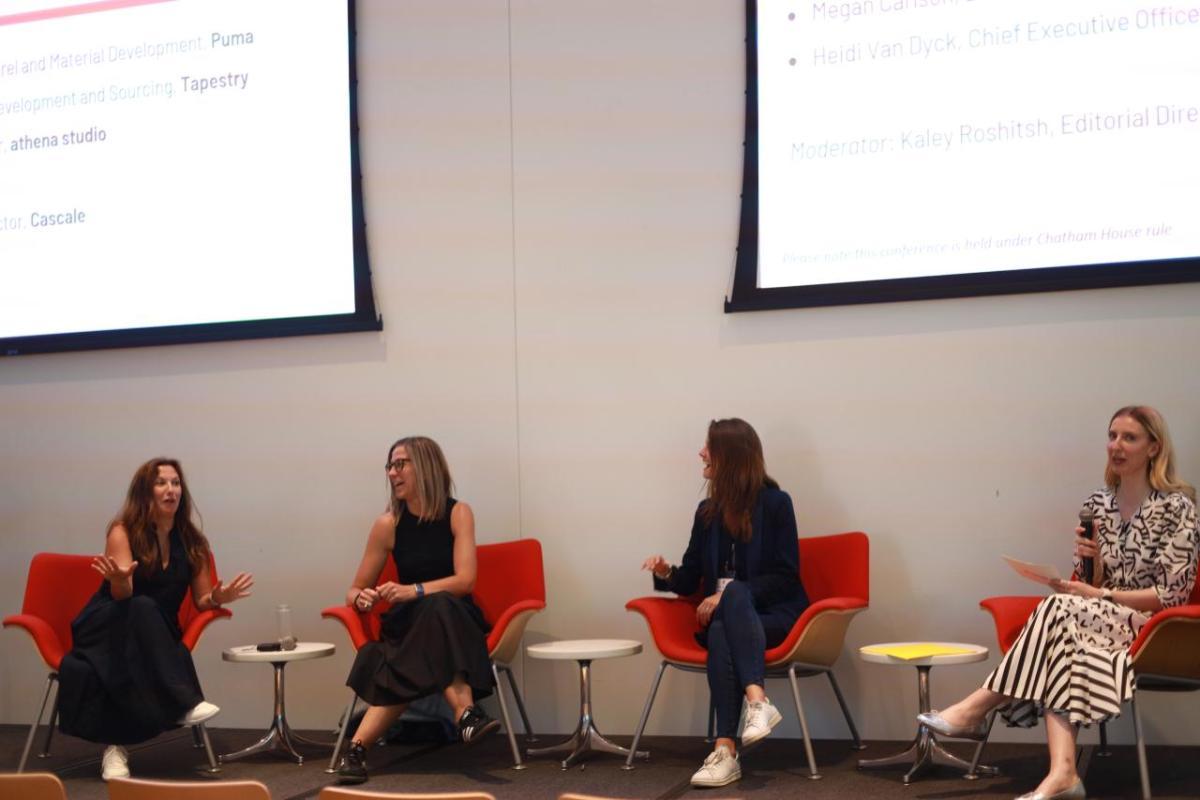Cascale Shares Insights at Innovation Forum in New York City

Cascale team members participated in the Innovation Forum’s Sustainable Apparel and Textiles Conference in New York City on June 25 to 26. This event followed IF’s April event in Amsterdam where Cascale executives also offered insights. As the official media collaborator with IF, Cascale assisted with sessions, speakers, and event marketing for the 2024 events.
The New York City conference took place on Roosevelt Island at Cornell Tech, with sweeping views of Manhattan. Topics spanned policy, climate action, circular systems, factory engagement and manufacturing, and social impact. Speakers hailed from all corners of the value chain, with Cascale members such as Tapestry, Everlane, Puma, and more participating.
Kaley Roshitsh, editorial director at Cascale, moderated a Tuesday session titled “Synthetics versus Sustainability: What is the future of recycled synthetic materials?”
Speakers included Noelle Angeli, senior head of apparel and material development at Puma Group; Heidi Van Dyck, founder and chief executive officer of Athena Studio; and Megan Carlson, director of materials development and sourcing at Tapestry-owned Coach. This mainstage breakout session highlighted the reality of material tradeoffs and how the companies are striving to integrate better practices – as well as data and tools like the Higg Index– into their product development and design choices.
Throughout the conference, there were many actionable themes. Panelists across the programming addressed sustainability’s cost conundrum head-on. They probed for long-term investment into innovation and technology, as well as pre-competitive relationships to get the industry back on track.
Policy was also topical. Speakers expressed a clear need for a cohesive, and urgent, policy response. Pakistani stakeholders expressed apprehension about incoming regulation for what it could mean for uninformed suppliers and another potential “race to the bottom” (where companies drive down costs or risk cutting ties with suppliers). Education could be the proactive remedy, per many panelists.
Reframing climate risk as material and quantifying circularity were also valuable lessons for attendees. Some regenerative agricultural models, however, aim to boast mutual benefit where risk is more equally dispersed. Circular businesses from Beyond Retro, ThredUp, and Archive additionally left attendees with hopeful views on pre-loved collaboration.

